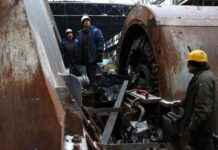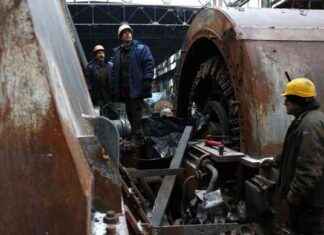The Red Cross and the Dutch branch of Médecins sans frontières (MSF) had warned of the impending humanitarian emergency at the reception center in Ter Apel, a village near the city of Groningen, outside of which more than 700 men slept, often for almost three weeks, hoping to obtain shelter while their case was being considered.
“Several hundred people were taken by bus late last night to other reception locations in the country,” said Leon Veldt, spokesman for the Dutch Refugee Agency (COA).
“We hope to slowly normalize the situation in Ter Apel,” he told AFP.
According to Dutch newspapers on Saturday, however, dozens of men stayed behind, mainly for fear of losing their place in the queue.
In this main reception center in the country, AFP correspondents had seen on Friday hundreds of asylum seekers lying on the ground under makeshift tarpaulins, near a row of dirty portable toilets and without other equipment.
Dutch Prime Minister Mark Rutte admitted there were “shameful scenes at the centre” and that mistakes had been made, promising a “structural solution” to the problem.
On Friday evening, the Dutch government announced measures to deal with this crisis, blamed on the lack of staff at the COA and the housing shortage in the Netherlands. Some 16,000 people whose asylum applications have been approved have no accommodation and are forced to stay in the centres.
The country should, for example, agree to bring in the families of those who have been granted asylum only when accommodation has been found for them.
The Dutch government has also promised to open more reception facilities – on a site that could be made available by the army, on a boat in Arnhem with 200 beds and in accommodation at the TU Delft university.
jhe/jg/at








